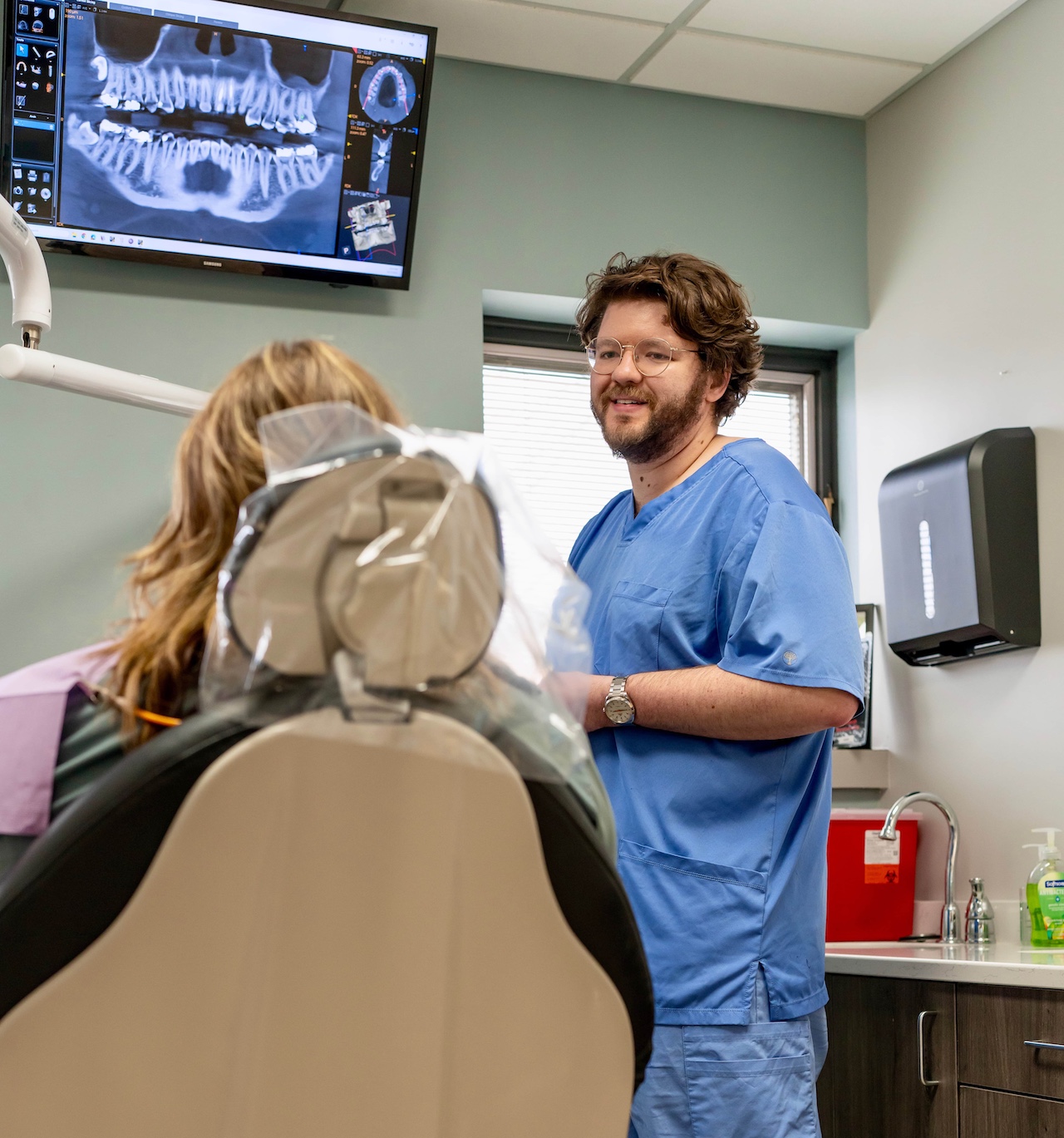Can your mild tooth pain be deadly? Quite literally, it can. Increasing by 40% over the last 8 years, more Americans are being hospitalized for tooth abscesses. In short, mild signs include sensitivity to cold or hot items, having a tough time chewing without pain or ongoing pain. Learn about the serious dangers of tooth abscess, how it can be treated and, how you can cope with paying for any treatment the infection requires.
What is this feeling, so sudden & new?
If you have soft enamel, tooth decay, a chip or gum disease, you’re at risk for an abscess. What does this entail? An abscess is when bacteria seeps down into the tooth and forms an infection either inside the tooth or between the tooth and gum.
Aside from tooth pain, you can also experience intense throbbing, bad breath, swollen jaw, face or neck glands, and a fever.
Your back teeth are prone to this infection since they’re the hardest workers doing all the chomping and breaking down for us, and also the hardest to reach with floss. Take action as soon as possible if you experience pain in your back teeth.
Maybe it’s too late
You waited too long to take any preventative actions now and you need to consider treatment. So what are your potential outcomes? There are generally three ways dentists will treat an abscess, including the following:
- Removal of the tooth: For deeper cases, the tooth needs to be removed. Once the tooth is gone, so is the infection.
- Cost: $75-300
- Draining: This option is for infections that are between your tooth and gum. Although this is a near immediate pain relief method, the infection is more likely to return.
- Cost: $150-300
- Root canal: Your best chance the tooth will survive is drilling in and draining the pus from the infected area. With effectiveness comes a large price.
- Cost: $300-2,000
Of course, do NOT let this be a diagnostic to your mouth pain. Consult a professional dentist today to get an official diagnosis.
So… Who’s paying?
Probably the main reason you could have waited or debated for so long on even visiting the dentist. Worry not, there are many payment options for every income possibility at Emergency Dental to ensure your safety. Yes, budgeting for a new, large life expense is exhausting, but a bill from the hospital with even more expenses to consider is worse. Emergency Dental offers many forms of payment, all of which can be found on our emergency dental costs page.
Prevention
This is a very terrifying and threatening infection of the mouth that is easily prevented. Include a few steps in your morning and evening if you don’t already including:
- Regular visits to the dentist every six months for a routine check-up is necessary to check the health of your gums, check for softening of your enamel and dentin, examine problem areas, bone loss or fractures and more.
- Pay attention to the toothpaste you’re buying. Fluoride toothpastes are the best for dental care of all ages but particularly in older adults who have a higher chance of receding gums and exposed, vulnerable teeth.
- Choosing the right mouthwash is also very important in dental care. There are many options and some of them might feel helpful, but aren’t.
From the Oral Care Center by Colgate on choosing mouthwashes not containing alcohol, “…studies by BioMed Research International suggests alcohol free mouthwashes have a better effect on the gloss, color, hardness and wear of tooth composite restorations compared to mouthwashes that contain alcohol,” said Yolanda Eddis, Registered Dental Hygienist at Central Alabama Veterans Health Care System.
With regular, daily care to your teeth and frequent visits to the dentist, you’re on your way to a healthy mouth and free of infection.
If you’re worried about the safety of your teeth, contact us between 9am-9pm every day, or fill out our Contact Us form for more information.
